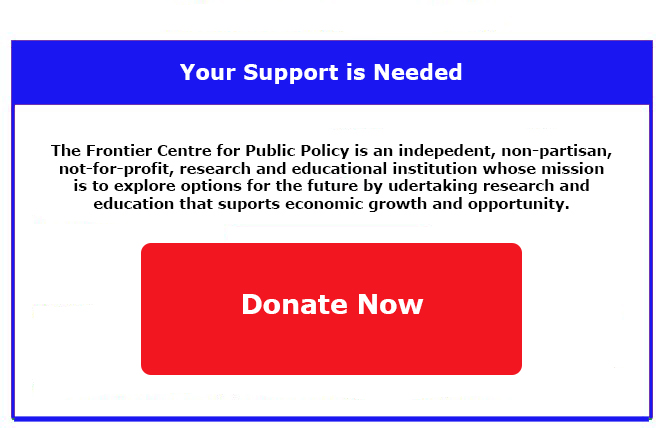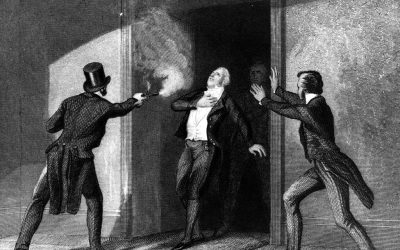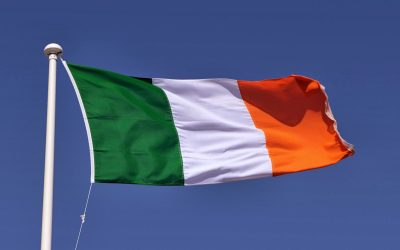There is a tear in society, a gap, a chasm that is growing and contributing to the wounding of the social fabric of societies almost everywhere. Those on either side of the chasm are barely able to touch one another, to understand the worldviews from the other side, and that chasm is growing, the separation becoming increasingly daunting for anyone still wanting to move back and forth; the gap is increasing deep, dark, and ominous.
There is a real risk that the separation will soon become so great that both sides risk being stranded on one side or the other. The decision of which side to choose is tearing apart families, friends, and communities; the worldviews from either side presenting new perspectives, new realities, expectation, interpretations, and truths.
Nowhere is this phenomenon more evident than in the affairs of the United States. A society divided by race, ideology, economics, class, geography, and history. A society bestowed by the constitution to be governed and at the same time to resist government, a society in which all men are created equal but in which some were only deemed to be 3/5th of a person, a society which has amassed unprecedented wealth and in which there are endless lines at food banks, a society of the free with more of its citizens incarcerated than China, Russia, or India.1
But this dichotomy, this paradox that is the United States is not unique. The same can be found, in different measures, across the developed world; paradoxes and dichotomies that tear at the fabric of societies.
The domino theory, a Cold War construct that held that if even one country fell to communist takeover neighbouring states would also fall like a perfectly aligned row of dominos, is more pertinent today than it was in the ’70s, but applied not only to nations but also to the very institutions of democracy. The failing of institutions, of trust in governments, in science, and in the engagement of civil disagreements are the dominos weakened today; they have been pitted by the hammering of greed, self-interest, willful ignorance, and apathy and now threaten to topple, not nations alone but civilization itself – yet once again. And as these institutions weaken and are diminished in places like the United States, then the anchors of moral authority become unmoored leaving adrift other susceptible nations to be toppled by the influences of anarchy.
After over four thousand years of religious indoctrination, several thousand years of philosophical inquiry, and several hundred years of modern pedagogical tradition, civilization again finds itself at the crossroad that history has so often cautioned us about. A crossroad where intolerance, extremism, and greed threaten once again to prevail over the better judgment that humanity so aspires to achieve. Like Daedalus we know that we must escape the dark labyrinth of history we have ourselves woven, the tragedies of war, atrocities to our fellow human beings, the savagery we know we harbour, and yet like Icarus, we can only go so far before we hurl ourselves back into the labyrinth.
Our wings, however, are not held together by wax, and our fate not predetermined. The wings of civilization are the education, the pedagogical heritage, and this culture of enlightenment that humanity has hammered and formed on the anvil of ignorance. Socrates, Confucius, Plato, and Aristotle, Leonardo da Vinci, Michelangelo, Galileo, Copernicus, Kepler, Hume, Locke, Voltaire, Kant, and countless thousands of other geniuses all took a swing at the molding of the wings of human civilization.
The dark labyrinth, however, looms once again; humanity has not once, but many times destroyed those wings. The Dark Ages, the inquisitions, the third Reich, the Kramer Rouge, the Maoist Revolution all marked periods when societies systematically and deliberately attempted to purge civilization of its achievements. When reason, intellect, and common sense were vilified. When alternative truths and dystopian principles were hailed as the dawn of a new civilization, of the purging of intellect, and institutions, the execution of anyone who held to the past.
There was the destruction of the crucible of history at the Great Library of Alexandria in 642 A.D., destroyed by zealots, though, which zealot remains contested even today.2
There was the great book burning of 1933 when students across Germany carried out a series of book burnings of works that the Nazi party associated with an “un-German spirit.” Enthusiastic crowds witnessed the burning of books by intellectuals like Einstein, Freud, Mann, and Remarque, scientists and cultural figures. The largest of these book burnings occurred in Berlin, where Joseph Goebbels in front of an estimated 40,000 people pronounced, “Jewish intellectualism is dead” and endorsed the students’ “right to clean up the debris of the past.”3
There was the so‐called “Great Proletarian Cultural Revolution” initiated by Mao Zedong between 1966 and 1976, which undertook a purge of the enemies of socialism – particularly intellectuals. A revolution waged against the so‐called four old evils: old ideas, old culture, old customs, and old habits, an extermination of the legacy of China’s traditional high culture. Intellectuals were tormented and murdered. Professors, artists, poets, and writers were exhibited to the public with placards of accusation around their neck and tapered shame hats on their heads, then beaten, tortured, and murdered. A whole national class of intellectuals was largely eliminated. In Tibet most of the religious institutions were destroyed, monks were killed or imprisoned and tortured in re‐education camps. By the end of the Cultural Revolution, only 13 of 6000 former Tibetan temples were still in existence and by some estimates, more than one million people had lost their lives in Tibet alone.4
There was the declaration of “Year Zero” by the Khmer Rouge when Pol Pot and his cadre took power in Cambodia in 1975, a regime that erased history and marked a new beginning with year zero. The Khmer Rouge started with a small communist insurgency and grew into a regime responsible for the deaths of an estimated 1.7 million Cambodians by execution, exhaustion, and starvation.5 Pol Pot isolated his Cambodians from the rest of the world, emptied cities, abolished money, private property, religion, and anything linked to non-socialist thought; people were condemned for wearing glasses or knowing a foreign language. Anyone thought to be an intellectual of any sort was killed. The slogan, ‘Executing in error ten innocent persons is better than releasing a single traitor’ was the basis of indoctrination.6 The regime sought a total reengineering of society by rewriting history, creating new institutions, establishing total monopoly of power, and a reaffirmation of Khmer glory. City dwellers were evacuated to rural camps, expected to wash away their urban mode of thinking and learn simplified and nonhierarchical vocabulary of the peasants.
In 2015 the Islamic State of Iraq and Syria (ISIS) launched a violent book looting and burning campaign throughout Iraq as part of its ongoing efforts to prevent the spread of any ideology that did not conform to its own radical interpretation of Islam. Islamist militants systematically ransacked the region’s cultural heritage, plundered libraries, and attacked archaeological sites with bulldozers and explosives. Destruction of ancient temples confirmed by satellite imagery, and propaganda videos by ISIS showcased militants rampaging through museums with pickaxes and sledgehammers, and others dynamiting centuries-old Christian and Muslim shrines. This deliberate destruction of antiquities, thousands of books on philosophy, law, science, and poetry marked yet another systematic attempt at cultural cleansing of heritage.
These are the labyrinths of insanity we humans seem intent on revisiting. Even today there is no shortage of movements around the world intent on destroying the value of education, science, literature, and arts.
The most insidious threat is fueled by the age of interconnectivity, the World Wide Web, and social media; a “post-truth” era. Cyberspace has become a powerful and efficient political instrument for the proliferation of half-truths, false facts, and alternative truths. The freedom to advance and to regress is driven by this, the most powerful advancement in history.
Cyberspace has become both a boon for informed participatory democracy as well as a cesspool of misinformation, propaganda, and coercion intended to influence the emotions of viewers over factual deliberation, facts over fiction, and partisanship over cooperation. The power of cyber technology has contributed, accelerated, and magnified ideological differences. And allegiance to cause has imperilled lawmaking, normalized political brinkmanship, becoming more important than shaping a response to a global pandemic and cost hundreds of thousands of citizens their lives.
Like so many other challenges to the integrity of participatory democracy, there are no easy solutions to the challenges posed by a post-truth era. It has always been accepted that there must be a healthy tension between citizens’ freedom of speech and the collective right to protect the vulnerable; even freedoms must have limits. But who decides, and what is the right balance?
Too much freedom gives license to hate, marginalization, and abuse. Too much regulation results in suppression of alternative views, group-think, and social control. These challenges are today magnified by the 24-7 on-demand availability of cyberspace platforms that penetrate even the remotest locations on earth, and the accompanying pervasive vying for the hearts and minds of every citizen; advertising, propaganda, and manipulation for allegiance and ideological control.
Cyber platforms have eroded previous boundaries for civil discourse, have little or no regulation or oversight and offer a cloak of anonymity that provides license for abuse without accountability.
Representative democracy depends on the public sphere for developing civil society.7 The public spheres play a decisive role in participatory democracy by providing a place for free and open discourse, un-coerced communication of equal participants, equal access, and equal rights.8 Participatory democracy requires simultaneous respect for the institutions and processes that define progressive governance as well as a measured scepticism of the same institutions and processes. History has only too vividly recorded the consequences of societies that moved either too quickly to replace existing institutions and practices with new ones, or those that failed to adapt to the evolving needs of a changing world.
The post-truth era is not dissimilar to the earlier periods that foresaw the assault on civilization; it signals a similar breakdown of social trust in the major institutions that are the discoverers, producers, and gatekeepers of truth, and accepted by society (science, governments, the school, etc.).9 But this should not be surprising given that the driving forces of social influence over the past forty years have been the forces that drive consumerism and with it the institutions of manipulation and persuasion; entire advertising infrastructures for manipulating consumer behaviour and conformity.
The post-truth world has made us accustomed to being provided, rather than self-seeking: sustenance for fulfilment, the brands we must have, the fashion trends that make us acceptable, the phones and gadgets without which our lives would become meaningless, the truth that is convincing, and the enemy within to be opposed.
With this, those who have access to the resources of manipulative communication have coerced participatory civil society into spheres of unequal participants, unequal access, and unequal rights. We have become accepting of the propaganda and manipulative art of advertising and with it the spin doctoring of fact, of reality, of moral judgment. With this, we have also fallen prey to the manipulative art of political polarization, of being dragged by those in positions of influence into ideological opposites.
As Margaret MacMillan, a professor of history at the University of Toronto, puts it: “A knowledge of history offers insurance against sudden shocks. World wars and depressions do not come out of the blue sky; they happen because previous restraints on bad behaviour have weakened.”10
Societies have grown increasingly committed to believing that winners take all, that effectiveness means taking advantage of every loophole, and that as long as one adheres to the rules one cannot do or be wrong. This un-tethering of legality from morality is reflected in the dual standards that political leaders today apply to their own compared to the opposition’s actions, the unashamed yet legal going back on public commitments to procedural practices, to dual standards, and outright lies.
Leaders around the world have taken their countries to the brink of failure, increasing economic and social inequality, and alienation within the global community, and yet they remain surprisingly resilient, surprisingly popular, and have effectively divided their societies into opposing camps. How these opposing camps view each other and the world is far more dangerous than either side realizes. Their (our) willingness to compromise the very institutions that have brought peace for a generation, imperfect as those institutions may be, for political advantage threatens to erode the very mortar that has bound us to collaboration and compromise, to reason, and justice. Unfortunately, the reality is that as Brian Winter the Editor in Chief of Americas Quarterly notes: “Maintaining this energized, loyal base even at the cost of intense polarization is regarded by politicians the world over as a necessary evil in this age of social media.”11
The dystopian scenario unfolding in the United States has now taken on a life and momentum that will become increasingly difficult to stop, let alone roll back to earlier periods of relatively more cohesive civil processes. The use of unmitigated false information, propaganda, and spin doctoring has ignited the tinder of a revolution between truth, reality, and rational thought, and conspiracy theories, fake news, and the forces of bigotry and hate. The premium paid by competing political interest, both Republican and Democratic, over the past four years for short-term gains has undermined democracy for at least an entire generation.
The towers of democratic principles can neither become so rigid that they collapse when subjected to the shearing forces of opposing positions, nor so flexible that they swing uncontrollably from side to side. The passing on of the baton from one administration to the next is dependent on maintaining a balance, on ensuring that governments represent everyone, even those who were opposed to the new government, on ensuring that the electorate are provided an opportunity to influence change, to make meaningful contributions and impact; that the passing of the baton includes threads of continuity from one government to the next. It is the demonstration of this element of continuity that is the essential ingredient for cultivating hope, confidence, and support by the electorate in the long-term legitimacy of democracy. Because existing structures require politicians to be inexorably tied to visions limited by the horizons of their term in office, while those in opposition are obliged to discredit and undermine the policies of those in power, the outlook remains grim.
Today, maintaining continuity has been eroded and damaged. The failure of the presiding and incumbent administrations in the United States to execute a cooperative transition is a signal to a polarized electorate of the dangerous sentiment that the winner takes all, the loser having to cower until they can reassert their party and once again rule over the other half. This is a message that is likely to resonate with tragic consequences elsewhere.
The complexities and explosive risks to the global village today are uniquely challenging. The public sphere needs to play a more decisive role in reasserting participatory democracy, one which provides a place for free and open discourse but with principles that provide a reasoned and informed foundation, and not so fluid so as to become irrelevant.12 The unprecedented electoral turnout in the U.S. elections under normal circumstances would be considered as a revival of participatory democracy, unfortunately, what this unprecedented turn out has demonstrated is the extreme division of a society, of both sides being willing to undertake extreme measures to defeat the other; and while this too is participatory democracy, it is more alarmingly an indication of the civil revolution underway in the United States, not a movement back to the middle ground from which both, those with either conservative or liberal preferences, can argue their cases. 
There is ample room to manoeuvre governance and norms to the left or to right without eviscerating the gatekeepers of truth and institutions of democracy. Political leaders today have corrupted long-term interests for civil society without the engagement of the unencumbered and rational electorate, an increasingly narrow segment of the electorate. The current resentment against elitism, urban electorates, academia, and the establishment are signals reminiscent of previous periods. It is increasingly evident that political leaders who aspire to a long-term vision for the control of their societies today do so not by threatening despotism as much as by the manipulation of the independent institutions of democratic systems – the judiciary for instance.
The real failure and threat to societies today is not the pandemic, or economic crisis, nor climate change, or race relations. The threat and consequences of any or all of these challenges could easily be mitigated and controlled, even eliminated, if the electorate was motivated towards the collective welfare of their nation, instead of tribalism. The monetary and emotional cost to the United States, for instance, due to tribalism will be far greater than any war, and the threat far more serious than any foreign adversary.
Every period of human history, every civilization has undergone seismic shifts when cynicism, division, and revolt set societies into a downward spiral, and this postmodern era, which we are now in the midst of, is no different than those earlier periods. As with previous disastrous periods in human history, those of us who now stand idly by as silent objectors will regret our inaction. And as with every earlier period, there is today a sense of outrage exhaustion, unconditional faith in the sustainability, integrity, and resilience of the institutions of freedom and higher principles, a faith that they can resist and overcome the corrosive and destructive forces; and as with those earlier periods we may once again be overestimating our faith – this is our Icarus complex.
[show_more more=”SeeEndnotes” less=”Close Endnotes”]
- World Prison Brief, https://www.prisonstudies.org/highest-to-lowest/prison-population-total?field_region_taxonomy_tid=All, Accessed November 16, 2020
- Lewis, Bernard. “The Arab Destruction of the Library of Alexandria: Anatomy of a Myth.” Library of the Written Word: 213.
- https://www.ushmm.org/collections/bibliography/1933-book-burnings
- Plänkers, Tomas. “Psychic Impact and Outcome of the Chinese Cultural Revolution (1966–1976)” International Journal of Applied Psychoanalytic Studies 8, no. 3 (2011): 227-238. https://onlinelibrary.wiley.com/doi/abs/10.1002/aps.305
- United Nations, “The Spectre of the Khmer Rouge over Cambodia”, https://www.un.org/en/chronicle/article/spectre-khmer-rouge-over-cambodia
- Path, Kosal, and Angeliki Kanavou. “Converts, not ideologues? The Khmer Rouge practice of thought reform in Cambodia, 1975–1978.” Journal of political Ideologies 20, no. 3 (2015): 304-332.
- Gimmler, Antje. “Deliberative democracy, the public sphere and the internet.” Philosophy & Social Criticism 27, no. 4 (2001): 21-39.
- Ibid.
- Harsin, Jayson. “Post-truth and critical communication studies.” In Oxford Research Encyclopedia of Communication. 2018.
- MacMillan, Margaret. “Which Past is Prologue?”, Foreign Affairs, September/October 2020
- Winter, Brian. “Messiah Complex’, Foreign Affairs, September/October 2020
- Gimmler, Antje. “Deliberative democracy, the public sphere and the internet.” Philosophy & Social Criticism 27, no. 4 (2001): 21-39.
[/show_more]
Anil Anand is a research associate at the Frontier Centre for Public Policy.
Photo by twenty20photos.



